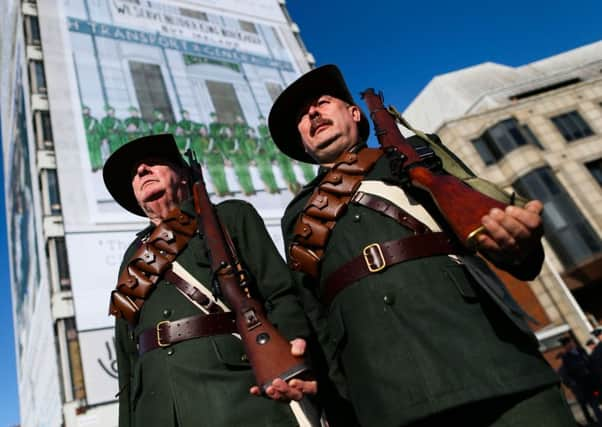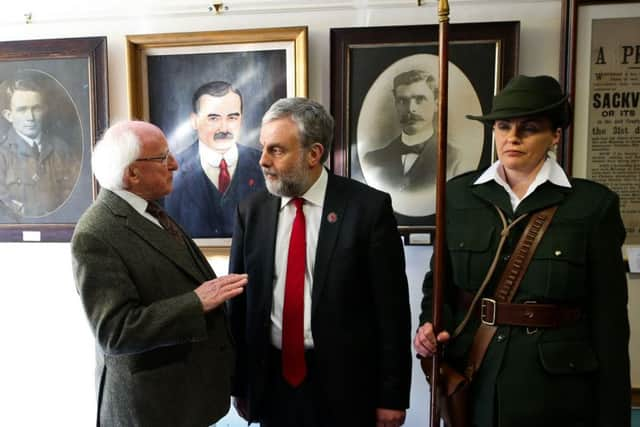Ideals of Easter Rising rebels remain unfulfilled: Higgins


At a state ceremony to honour James Connolly and the Irish Citizen Army, the president said the aspirations of socialists in the Rising can inspire the rebuilding of Ireland’s society and economy.
It was one of the last official events of the 1916 centenary commemorations and President Higgins used it to reflect on a revolution which he regards as incomplete.
Advertisement
Hide AdAdvertisement
Hide Ad“The women and men of the Irish Citizen Army were committed to achieving much more than just a national political independence: the Republic of which they dreamt – the Republic which is yet to be realised – was one that would enable a more equal redistribution of the fruits of prosperity among all of its children,” Mr Higgins said.


He added: “Land and private property, a restrictive religiosity and a repressive pursuit of respectability, affecting in particular women, became the defining social and cultural ideals of the newly independent Ireland, at the expense of any fundamental social transformation of an egalitarian kind.
“The republic for which they hoped remains unfulfilled, yet those same aspirations for true equality, for real independence, can still sustain us today in the task of rebuilding our society and our economy.”
He said the years that followed the rebellion saw the rise of “property-driven conservatism”.
Advertisement
Hide AdAdvertisement
Hide AdThe president made his remarks at the special commemoration at Liberty Hall in Dublin, headquarters of the Irish Citizen Army, a socialist militia set up by Connolly in the wake of the 1913 Lockout, and where the Proclamation was printed.


A wreath was laid at the rebel leader’s statue on Beresford Place before a minute’s silence was held, a piper’s lament and the Last Post were played, the tricolour was hoisted and Reveille and Amhran na bhFiann rang out.
The Irish Citizen Army flag was also flown outside Liberty Hall for the ceremony.
The original flag, a green weave with a yellow harp which was raised at the site on Palm Sunday, April 16 1916, was also on display after being returned to the trade union headquarters by the Inniskillings Museum in Enniskillen.
Advertisement
Hide AdAdvertisement
Hide AdA commemorative plaque in honour of Connolly was also unveiled.
President Higgins said one of the Irish Citizen Army’s most remarkable legacies was the place it carved out for women – among its ranks and in its vision for Ireland.
Liberty Hall was shelled by the British gunship the Helga on the third day of the Rising and reduced to a ruin, even though it lay empty for the rebellion.
President Higgins said its destruction was a metaphor intended as “a symbol of the ruination of the hopes that had galvanised the combatants of the Citizen Army”.
“Those hopes did not die. We are all here today,” he said.